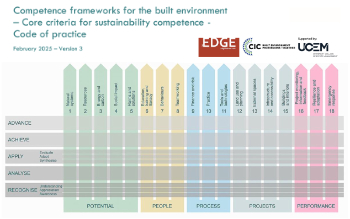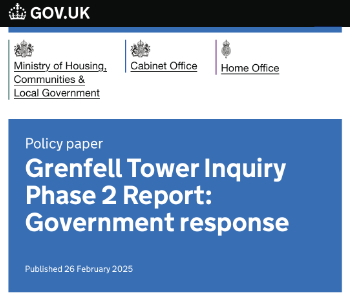National compensation code
The national compensation code (the compensation code or the land compensation code) is the collective term for the principles derived from statute and case law, relating to compensation for compulsory acquisition, which ensures that when land is needed for an infrastructure project, the owners receive compensation to help them relocate. The code also ensures that those who experience real, physical events, for example vibration or noise, from a scheme once it is in operation are entitled to compensation.
Ref The HS2 London-West Midlands Environmental Statement, Glossary of terms and list of abbreviations, DETR 2013.
Formally there is no actual code. It is not a single document, but comprises a collection of enactments, consisting primarily of the Land Compensation Act 1961, the Compulsory Purchase Act 1965 and the Land Compensation Act 1973 (as amended by the Planning and Compensation Act 1991 and the Planning and Compulsory Purchase Act 2004), supplemented by case law informing the effect of these provisions and their predecessors.
Ref Crossrail information paper C2, Operation of the National Compensation Code, Crossrail 2007.
[edit] Related articles on Designing Buildings Wiki
- Compulsory purchase.
- Compulsory purchase orders for listed buildings.
- Crichel Down rules.
- Demolition.
- Empty dwelling management orders.
- Empty housing in London - documentary.
- National planning policy framework.
- Nationally significant infrastructure projects.
- Neighbourhood Planning Bill 2016-17.
- Planning and Compensation Act 1991.
- Planning permission.
- Property blight.
- Safeguarded land.
Featured articles and news
Private rental sector, living standards and fuel poverty
Report from the NRH in partnership with Impact on Urban Health.
.Cold chain condensing units market update
Tracking the evolution of commercial refrigeration unit markets.
Attending a conservation training course, personal account
The benefits of further learning for professsionals.
Restoring Alexander Pope's grotto
The only surviving part of his villa in Twickenham.
International Women's Day 8 March, 2025
Accelerating Action for For ALL Women and Girls: Rights. Equality. Empowerment.
Lack of construction careers advice threatens housing targets
CIOB warning on Government plans to accelerate housebuilding and development.
Shelter from the storm in Ukraine
Ukraine’s architects paving the path to recovery.
BSRIA market intelligence division key appointment
Lisa Wiltshire to lead rapidly growing Market Intelligence division.
A blueprint for construction’s sustainability efforts
Practical steps to achieve the United Nations Sustainable Development Goals.
Timber in Construction Roadmap
Ambitious plans from the Government to increase the use of timber in construction.
ECA digital series unveils road to net-zero.
Retrofit and Decarbonisation framework N9 launched
Aligned with LHCPG social value strategy and the Gold Standard.
Competence framework for sustainability
In the built environment launched by CIC and the Edge.
Institute of Roofing members welcomed into CIOB
IoR members transition to CIOB membership based on individual expertise and qualifications.
Join the Building Safety Linkedin group to stay up-to-date and join the debate.
Government responds to the final Grenfell Inquiry report
A with a brief summary with reactions to their response.






















